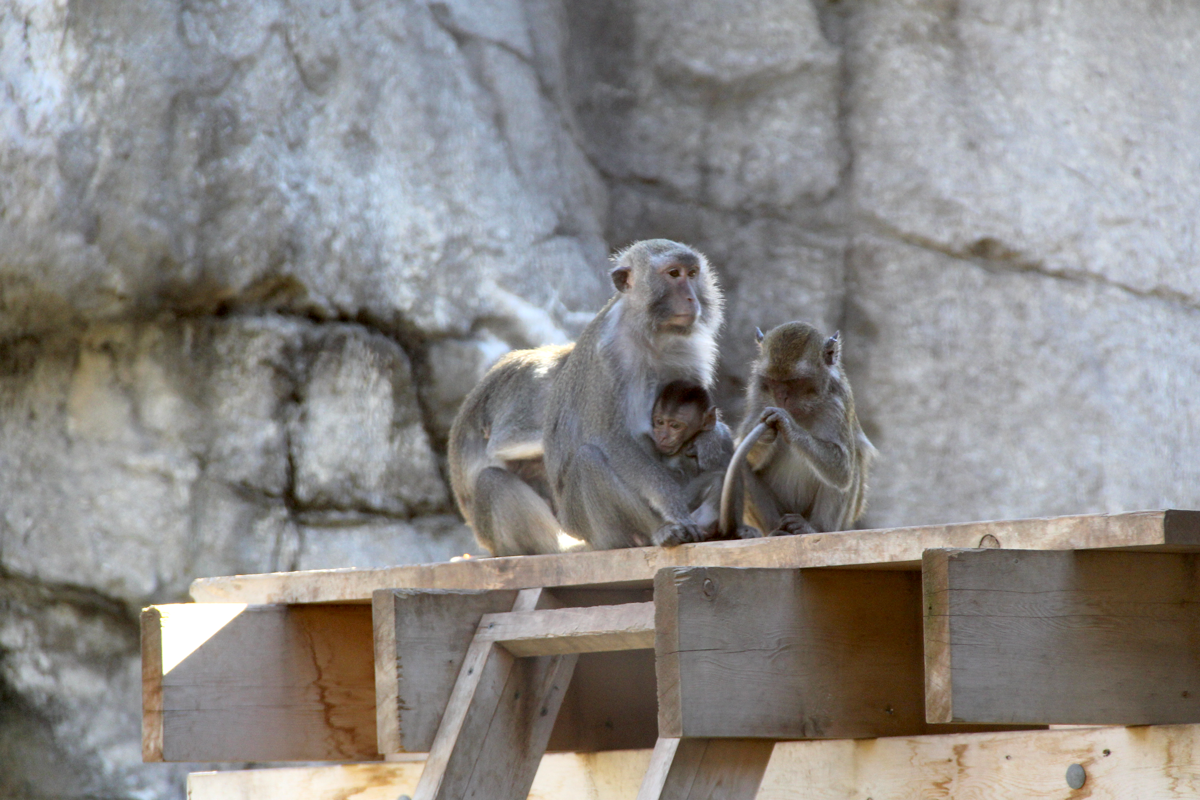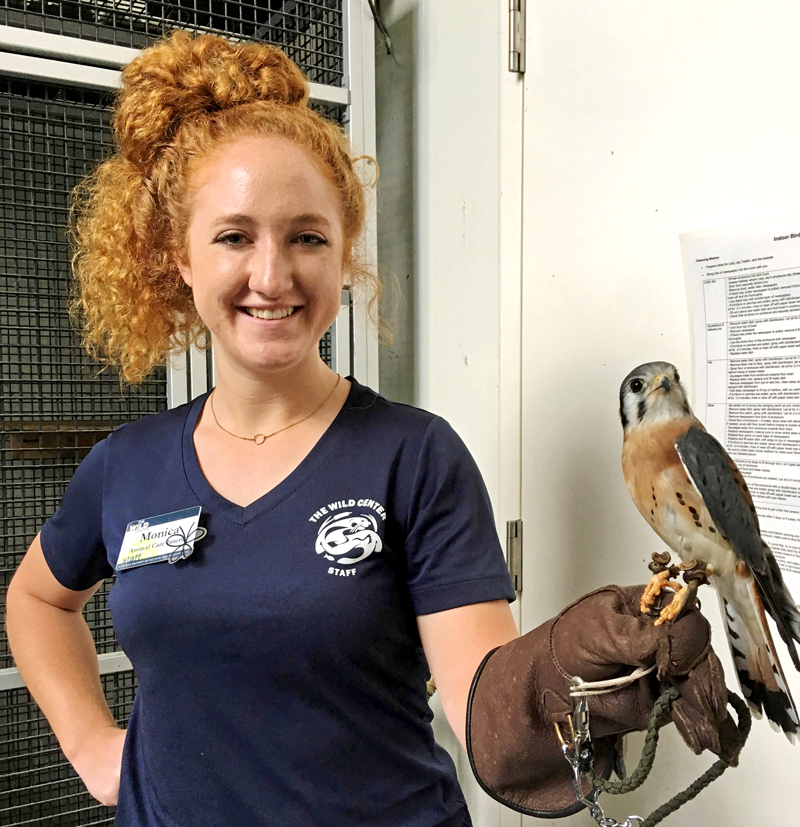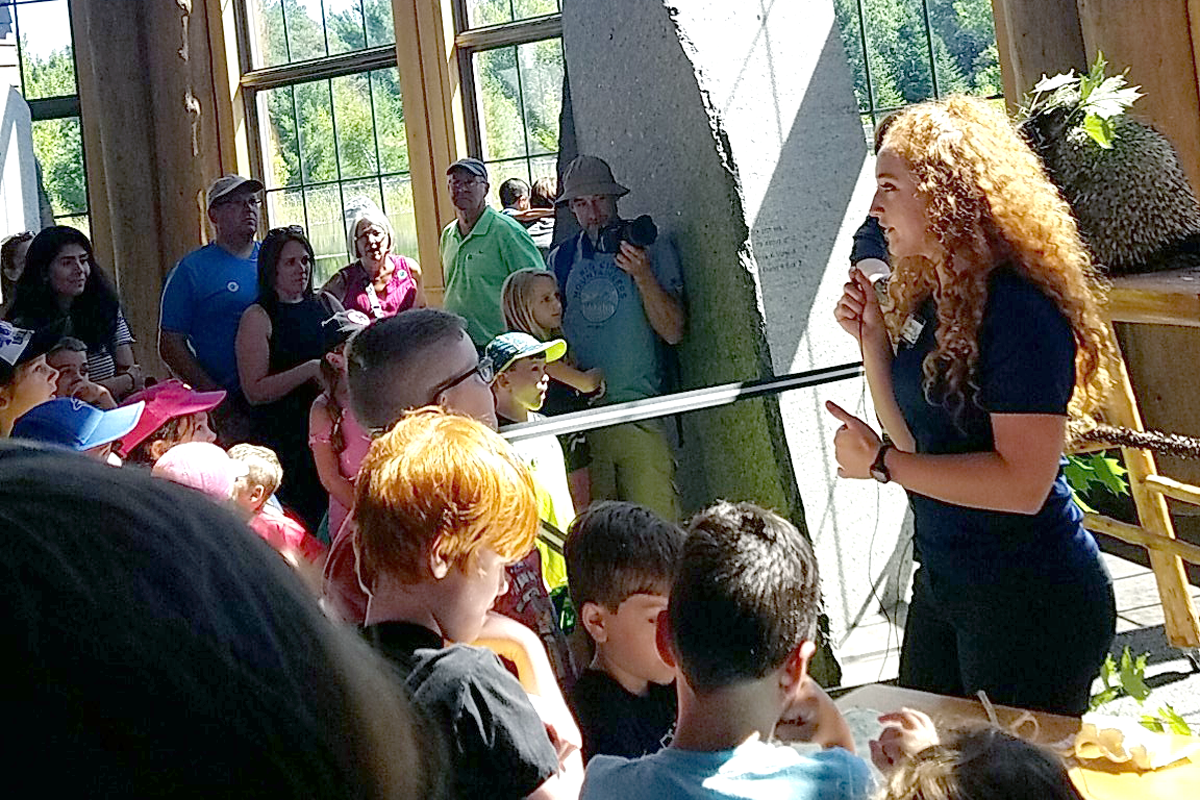“They each have their own personality,” she shared. “You get to know them like they’re your friends, so you start talking about them like they are.”
Witcher, a biology and neuroscience senior, is completing a capstone research project that will help the zoo better understand the monkeys’ social hierarchy.
To collect data, Witcher and other researchers pick a focal (one macaque) and then in 15-minute increments records interactions, grooming behaviors and any notable activity. The data will then be used to create a sociogram, which is a webbed network that will reveal insights about the animals’ relationships. Ultimately that data will help the zoo better understand and provide care for the animals.

Macaques at the Indianapolis Zoo. Photo: Candace Gwaltney
Growing up in Fishers, Ind., Witcher dreamed of becoming a veterinarian. She worked at the Humane Society as a teen, playing with the animals. During high school, she trained as a vet assistant and worked at a local clinic where she was able to draw blood from cats and dogs, administer vaccines and trim nails.
When she started at IUPUI, Witcher planned to pursue a biology degree and then attend veterinary school. IUPUI was the perfect fit as she wanted more hands-on experiences.
“Knowing I could do research right when I started college was a plus,” she said. “I definitely wanted to get a lot of experience here. Also, the LHSI (Life-Health Sciences Internship) program I had heard about—that was also very encouraging.”

Witcher at The Wild Center.
Freshman year, Witcher worked with Professor James Marrs, Ph.D., through the Biology Apprentice Program. She then participated in LHSI working with Debra Hickman, DVM, research associate professor and LARC Director, at the IU School of Medicine Laboratory Animal Resource Center working on animal welfare tactics.
It was her coursework and conversations with advisor Cindy Williams that led Witcher to adjust her degree plan and career path.
“I was interested in the brain and behavior, which is why I added neuroscience to my majors,” she said.
In addition to her work at the Indianapolis Zoo, Witcher completed an internship last summer at The Wild Center in the Adirondacks in Tupper Lake, NY. She became a certified interpretive guide and created interpretive programs for porcupines and amphibians, which she presented to museum guests. She also helped create enrichment for the animals.

Witcher presents an interpretive program about porcupines at The Wild Center. Photo: Courtesy Monica Witcher
“Enrichment for animals at the zoo is very important because it stimulates their natural instincts,” she said. “The animals are able to interact like they would in the wild, so it keeps their brain working and strategizing.”
Witcher now hopes to build a career at zoos where she can use her neuroscience degree to study animal behavior. Her passion and love for animals stems from animals’ ability to give unconditional love.
“They don’t really have a voice, so you have to be their voice,” she noted.